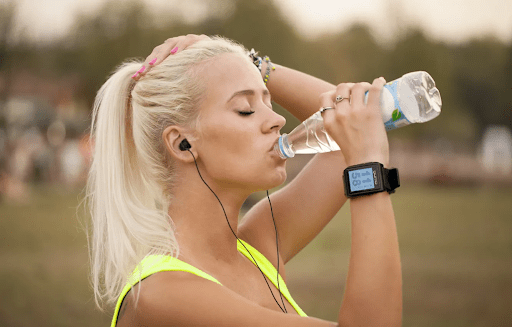

Hydration and exercise are fundamental aspects of a bodybuilder’s optimal performance and overall well-being.
Adequate hydration ensures muscles receive sufficient oxygen and nutrients during workouts, enhancing endurance and strength. It also helps regulate body temperature, preventing overheating and reducing the risk of fatigue and cramping during intense training sessions.
Regular exercise improves overall health and fitness goals by promoting muscle growth, maintaining cardiovascular health, strengthening muscles and bones, and improving flexibility and balance.
While these two are critical to bodybuilding, some bodybuilders prioritize exercise over hydration, which may lead to dehydration.
To prevent that from happening, this article covers everything you need to know about hydration, dehydration, and how it relates to exercise.
Hydration Explained
Hydration is when the body has adequate fluids, typically water, to maintain proper bodily functions and overall health.
Water is the primary fluid that keeps our body hydrated. On average, our bodies are made up of 60% water, which impacts almost every body system, from the brain to the muscles to the cardiovascular system. Without it, our bodies can not function.
Water helps maintain optimum body function and metabolic processes, such as lubricating joints, removing toxins, transporting nutrients, and supporting digestion to give energy.
Water Needed Before and After Workouts
Your recommended daily water intake varies depending on age, weight, activity level, climate, and overall health.
If you’re physically active, your water intake requirement for hydration might be higher than the average person’s since you lose a lot of water from your body through sweating during a workout.
The American Council on Exercise recommends drinking 2.1 cups or 17 ounces to 2.5 cups or 20 ounces of water 2 to 3 hours before the exercise and 1 cup or 8 ounces of water during the warmup or 30 minutes to exercise.
During the workout, they suggest drinking 7 to 10 ounces of water every 10 to 20 minutes and 8 ounces of water within 30 minutes after exercise.
There is no exact water recommendation for people living in humid or hot climates and those with certain medical conditions that cause the body to lose a lot of water, such as diabetes, heart disease, and cystic fibrosis; however, you need to drink a lot of water to maintain a balance between the water lost and the water gained.
Other fluids, such as herbal tea, infused water, coconut water, and certain fruits like watermelon and vegetables with high water content, can contribute to hydration. You should take them to stay hydrated rather than struggle with water alone. According to the research above, 80% of your fluid intake should come from water and other fluids and 20% from foods.
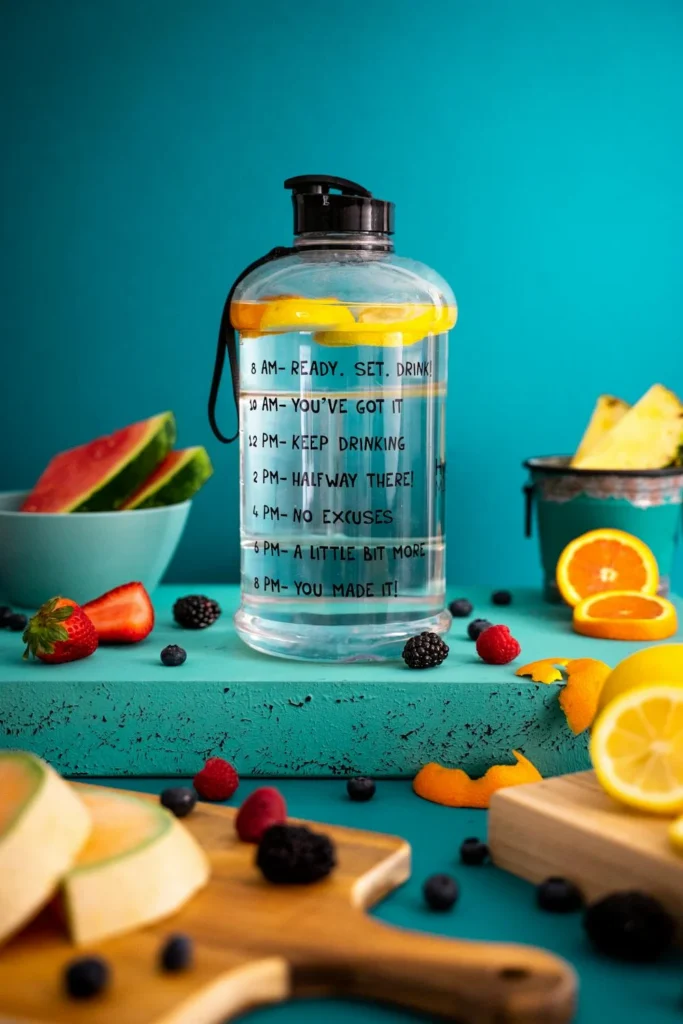
What is Dehydration?
Despite knowing the benefits of hydration to the body, some bodybuilders still forget or ignore drinking enough water to meet their daily hydration requirement, which may cause dehydration.
Dehydration occurs when the body loses more fluids than it takes in through urination, breathing, bowel movements, or sweat.
When you work out, your body sweats to regulate body temperature to optimum levels. Water and other essential electrolytes are lost through sweating, leading to an imbalance in the body’s electrolytes and impairing its ability to function correctly. To prevent such a scenario, drink fluids before, after, and during exercise.
Dehydration may also occur when you drink alcohol. Alcohol is a diuretic, meaning it increases urine production and can contribute to dehydration, especially if consumed in large quantities.
As a bodybuilder, you should not combine alcohol with exercise as it can lead to complications such as heat exhaustion, heatstroke, kidney problems, seizures, and even coma.
7 Signs of Dehydration
Staying hydrated is essential for optimal performance, muscle recovery, and overall health. However, due to increased fluid loss, you may experience dehydration, which can hinder you from reaching your fitness goal.
Here are some signs that you may not be hydrating well:
1. Dark Urine Color and Infrequent Urination
One of the most noticeable signs of dehydration is dark-colored urine. When dehydrated, urine becomes more concentrated, resulting in a darker color. This occurs because the kidneys conserve water by producing less urine, producing a higher concentration of waste products.
If your urine is consistently colorless or light yellow, it’s a sign that you’re well hydrated, but if it’s dark yellow or amber, you’re not drinking enough fluids. The darker the color, the more dehydrated you are and the more fluids you need.
Dehydration also causes infrequent urination or a reduced volume of urine. If you’re not urinating regularly throughout the day or your urine output is significantly lower than usual, it may be a sign of dehydration.
2. Lack Of Sweat During Workouts
During intense exercise, you are expected to lose significant amounts of fluid through sweating to help regulate body temperature and prevent overheating.
However, when dehydrated, the body perceives the water deficit and naturally defends itself by conserving the remaining fluids for hydration. Hence, there may not be enough fluid available for sweating to occur.
3. Thirst
Feeling thirsty is a natural signal you need more fluids. Ignoring thirst cues can lead to dehydration, so listening to your body and drinking water when thirsty is essential.
Other factors may cause thirst, too. According to the NHS, eating a lot of salty food, exercising, drinking alcohol, and drinking caffeinated drinks like coffee can contribute to thirst. Regardless of the underlying factor, ensure you drink enough fluid to meet your body’s needs for optimal hydration to support muscle growth and performance.
Before hitting the gym, avoid eating foods and drinks that may contribute to thirst, such as caffeinated drinks and alcohol.
4. Dry Mouth and Lips
Exercise is one of the factors that contribute to dehydration. When dehydrated, your body strives to conserve fluid for hydration rather than cooling down your body, and that includes reducing saliva production, which is crucial in promoting digestion and maintaining pH balance in the mouth. When that occurs, your mouth and lips become dry.
If you frequently experience dry mouth or find your lips dry and cracked, it could indicate you’re dehydrated and need more water.
5. Fatigue and Weakness
To reiterate, water is crucial for optimum bodily function. It keeps the body hydrated, helps transport nutrients to the muscles for energy, and facilitates the removal of toxins from the body.
Insufficient fluid in the body leads to inadequate hydration, impairing physical and cognitive performance, leading to fatigue, weakness, and decreased energy levels.
If you notice a decline in your performance levels despite proper nutrition and training, dehydration could be a possible cause.
6. Muscle Cramps
Cartilage tissue, which protects bones and joints by acting as a sock absorber, is 80% water. When dehydrated, the cartilage tissue weakens, allowing bones to grind against each other. This results in sore joints and muscles during the exercise.
During exercise, fluids that would have facilitated the normal distribution and concentration of essential ions such as sodium, potassium, calcium, and magnesium are lost. Electrolyte imbalances resulting from this fluid loss (dehydration) disrupt muscle function and lead to painful cramps or spasms.
7. Headaches
Dehydration can cause headaches or exacerbate existing ones.
When dehydrated, the body reserves water by constricting the blood vessels. Constricted blood vessels reduce blood volume and blood flow to the brain, decreasing the delivery of oxygen and nutrients to the brain, which results in headaches.
Sports drinks
While water is the main component of staying hydrated, sports drinks are also essential for hydrating and enhancing fitness performance.
They contain crucial electrolytes such as sodium, chloride, and magnesium, which work together to regulate and maintain fluid balance and prevent electrolyte imbalances that can occur during prolonged or intense exercise.
Sports drinks also contain calories and other nutrients that provide quick energy for working muscles during exercise. Consuming them before engaging in a high-intensity activity of over an hour can help sustain endurance and delay fatigue.
When choosing a sports drink or beverage, consider your hydration needs, the type and intensity of exercise you’ll be doing, and any specific dietary preferences or restrictions you may have.
Look for sports drinks with sodium, potassium, and magnesium electrolytes. These minerals help replenish what is lost through sweat during exercise and support optimal hydration and muscle function.
Sports drinks often contain carbohydrates. Consider the carbohydrate content of the sports drink based on the duration and intensity of your workout. A lower carbohydrate content may be preferable to avoid gastrointestinal discomfort for shorter, high-intensity activities.
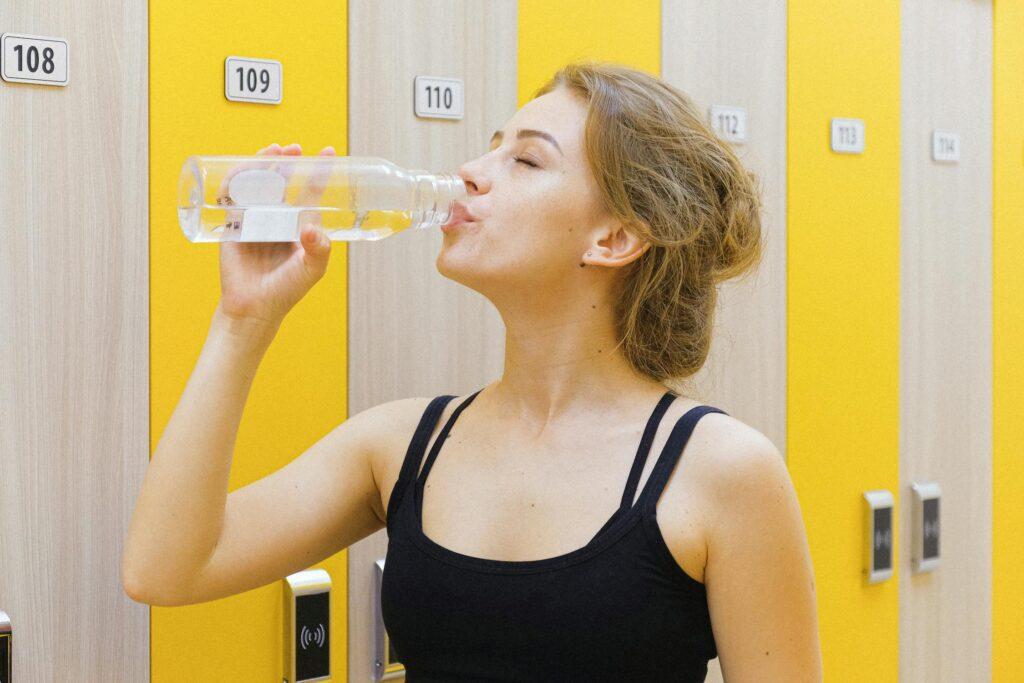
What Should You Not Drink When Exercising?
Certain beverages are unsuitable for replenishing fluids and may even contribute to dehydration. Here are some drinks to avoid as hydrating beverages:
- Alcohol is a diuretic. It increases urine production and can lead to dehydration.
- Sugary soft drinks, sodas, and energy drinks are high in sugar and low in water content. Consuming them can cause a spike in blood sugar levels and contribute to dehydration.
- Caffeinated drinks– Caffeine is a mild diuretic that can increase urine output and lead to fluid loss. Excessive intake or reliance on caffeinated drinks for hydration may not be ideal.
- While fruit juices contain some water, they are also high in natural sugars and calories. Drinking large amounts of it can rapidly increase blood sugar levels.
Conclusion
As a bodybuilder, aim to drink plenty of fluids throughout the day, especially before, during, and after workouts, to ensure you stay adequately hydrated.
Aside from water, sports drinks are suitable for hydration during prolonged or intense exercise. However, they’re not always necessary, and water remains the primary and most accessible source of hydration.
To know if you’re dehydrated, look for signs like dark-colored urine, thirst, dry mouth, fatigue, dizziness, and decreased urine output, and adjust your fluid intake.
Remember that individual fluid needs can vary based on factors such as body size, activity level, and environmental conditions, so finding a hydration routine that works best for you is essential.













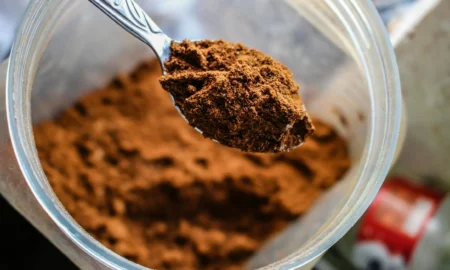
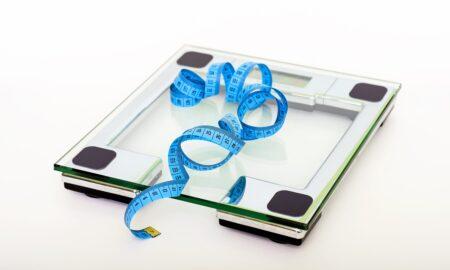
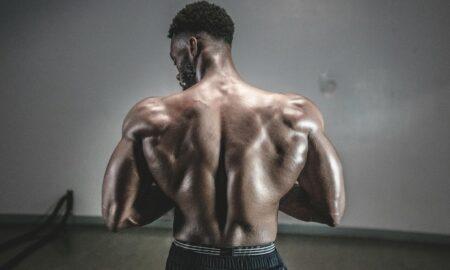





You must be logged in to post a comment Login